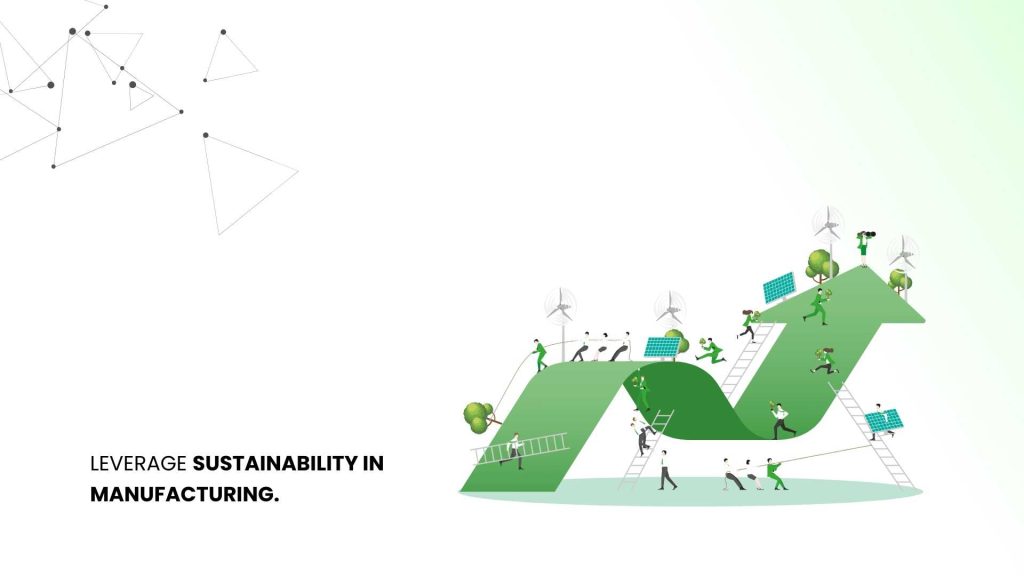Sustainability has become a key consideration for manufacturing companies worldwide. These firms recognize the value of incorporating sustainable practices to address environmental concerns. Through implementing a holistic approach, they are reevaluating their roles in a space where ecological consciousness and industrial activities converge.
We delve into the transformative ways manufacturing companies endorse sustainability.
Energy Efficiency Upgrades
One of the most impactful ways companies are contributing to sustainability in manufacturing is through energy efficiency upgrades. Manufacturers are investing in cutting-edge technologies and processes that reduce energy consumption, lower greenhouse gas emissions, and decrease their overall carbon footprint.
From implementing smart lighting systems to upgrading machinery with energy-efficient components, these initiatives benefit the environment and lead to cost savings in the long run.
Waste Reduction and Recycling Programs
Manufacturing processes often generate significant waste, but forward-thinking companies are addressing this issue head-on. Manufacturers divert materials from landfills by implementing waste reduction and recycling programs and promoting the circular economy.
Reusing production by-products and recycling packaging materials reduce the company’s environmental footprint and foster a culture of reliable resource management.
Supply Chain Optimization
Sustainability in manufacturing goes beyond the factory floor; it extends to the entire supply chain. Companies increasingly scrutinize their supply chain processes to identify and mitigate environmental impacts.
It includes selecting eco-friendly suppliers, optimizing transportation routes to reduce emissions, and minimizing the use of non-renewable resources. Companies can create a more resilient and environmentally conscious manufacturing ecosystem by embracing sustainable practices throughout the supply chain.
Employee Engagement & Training
The human element is crucial in driving sustainability initiatives within manufacturing companies. Employee engagement and training programs are becoming integral components of sustainability strategies.
Companies are investing in educating their workforce about sustainable practices, encouraging employees to contribute ideas for improvement, and fostering a sense of responsibility towards the environment. Engaged and informed employees are key in implementing and sustaining green initiatives within the manufacturing sector.
Renewable Energy Adoption
Manufacturing companies increasingly turn to renewable energy sources as the world transitions towards a greener future. From solar and wind to hydroelectric power, adopting renewable energy helps lower support on fossil fuels and decreases the carbon footprint of manufacturing operations.
Many companies invest in on-site renewable energy infrastructure or enter into partnerships to procure clean energy, further solidifying their commitment to sustainable practices.
Sustainability Challenges In SMBs
- Resource Constraints: SMBs often need more financial and workforce resources, hindering their ability to invest in sustainable practices.
- Lack of Awareness and Education: Many SMBs struggle with a lack of awareness and understanding of sustainable practices, making it challenging to implement meaningful initiatives without the necessary knowledge.
- Supply Chain Complexity: Managing sustainable practices across intricate supply chains poses a significant challenge for SMBs, especially when dealing with suppliers with different sustainability commitments.
- Regulatory Compliance: Keeping up with evolving sustainability regulations can be burdensome for SMBs, who may need more dedicated personnel or resources to navigate and adhere to the ever-changing compliance landscape.
Conclusion
ERP solutions are a transformative tool for SMBs seeking to bolster their commitment to sustainability. By streamlining processes, optimizing resource utilization, and providing real-time insights. These solutions empower SMBs to make informed decisions that minimize environmental impact.
As SMBs increasingly embrace ERP technology, they enhance operational efficiency. And contributes significantly to building a more sustainable and resilient business ecosystem. ERP solutions emerge as catalysts for sustainable growth in this digital era, bridging the gap between operational excellence and environmental stewardship in the SMB sector.
Read related blog topic: Sustainability In Food Manufacturing

Vijay comes with a vast experience in ERP and enterprise solutions space with about 20 years of experience in various packaged application like Acumatica, SAP, Orion, Salesforce.com, SugarCRM and, SalesLogix.

